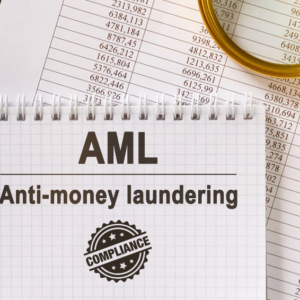Starting a business is an exciting venture that can lead to significant personal and financial rewards. However, one crucial step in this journey is registering your business in South Africa. Registering a business not only legitimizes your enterprise but also provides various legal protections and opportunities for growth. This guide will walk you through the process of registering a business in South Africa, including the types of business entities, the registration process, and the post-registration steps you should take to ensure your business thrives.
Types of Business Entities in South Africa
Before diving into the registration process, it’s important to understand the different types of business structures available in South Africa. The business structure you choose will affect your legal obligations, tax responsibilities, and personal liability.
- Sole Proprietorship: This is the simplest form of business ownership, where an individual operates the business on their own. While it’s easy to set up, the owner is personally liable for all debts incurred by the business.
- Partnership: A partnership involves two or more individuals who share ownership of a business. Partners share profits, losses, and responsibilities. It’s essential to have a partnership agreement to outline each partner’s roles and obligations.
- Private Company (Pty Ltd): This is the most common business type in South Africa. A private company has its own legal identity, separate from its owners. This structure limits the owners’ liability to the amount they have invested in the company, providing a layer of protection for personal assets.
- Non-Profit Company: Designed for entities that operate for a charitable purpose, a non-profit company cannot distribute profits to its members. Instead, profits must be reinvested into the organization’s objectives.
Choosing the right business structure is crucial as it will influence your business’s legal and tax obligations. It’s advisable to consult a legal or business advisor to determine the best structure for your specific needs.
Business Pre-Registration Steps in South Africa
Before registering your business, there are several important steps to take to ensure a smooth registration process and a successful business launch.
- Market Research: Conduct thorough market research to understand your target audience, competitors, and industry trends. This will help you identify opportunities and potential challenges in the market.
- Business Plan: A well-crafted business plan is essential. It should include your business objectives, strategies for achieving them, marketing plans, and financial projections. A solid business plan will also be crucial if you seek funding from investors or financial institutions.
- Financing Plan: Determine how you will finance your business. This could be through personal savings, loans, or investors. Create a detailed financial plan that outlines your startup costs, ongoing expenses, and revenue projections.
- Choosing a Business Name: Your business name is vital for branding and marketing. It should be unique, memorable, and relevant to your business. Conduct a name search on the CIPC website to ensure your chosen name is not already registered.
Business Registration Process in South Africa
Once you have completed the pre-registration steps, you can proceed to register your business. The registration process in South Africa is relatively straightforward, especially with the availability of online services.
Online Registration: The CIPC (Companies and Intellectual Property Commission) provides an online platform called Bizportal for business registration. Here are the steps to register online:
- Visit the Bizportal website and create an account.
- Select the type of business entity you wish to register.
- Provide the required information, including your business name, physical address, and details of the directors or members.
- Upload the necessary documents, such as identification and proof of address.
- Pay the registration fee, which is approximately R125 for a private company.
- Once submitted, you will receive a registration number, and your business will be officially registered within a few days.
Offline Registration: If you prefer traditional methods, you can register your business offline. This involves submitting the required forms and documents to the CIPC offices. However, this method can be more time-consuming than online registration.
Required Documentation: When registering your business, you will need to provide specific documents, including:
- Certified copies of identification for all directors or members.
- Proof of address for the business.
- Company registration forms, which vary depending on the type of business entity.
It’s essential to ensure that all documents are accurate and complete to avoid delays in the registration process.
Trademark Registration
Once your business is registered, consider protecting your brand by registering a trademark. This ensures that your business name, logo, and slogan are legally protected from unauthorized use by others. Here’s how to register a trademark in South Africa:
- Conduct a Trademark Search: Before applying, perform a search on the CIPC trademark database to ensure that your desired trademark is not already registered.
- Prepare Your Application: Complete the trademark application form, providing details about the trademark and the goods or services it will represent.
- Submit Your Application: Submit your application to the CIPC along with the required fee. The process can take several months to complete, during which your application will be examined for compliance.
- Receive Confirmation: If your trademark is approved, you will receive a registration certificate, providing legal protection for your brand.
Post-Registration Steps in South Africa
After successfully registering your business, there are several additional steps to take to ensure compliance and operational efficiency.
- Tax Registration: Register your business with the South African Revenue Service (SARS) for tax purposes. You will need to apply for an income tax reference number, which is essential for filing tax returns. Depending on your business’s structure and turnover, you may also need to register for VAT.
- Opening a Business Bank Account: It’s crucial to open a separate bank account for your business. This helps keep your personal and business finances separate, making it easier to manage your accounts and prepare for tax filing.
- Compliance with Local Regulations: Depending on your business type and location, you may need to comply with various local regulations and obtain specific licenses or permits. Research applicable laws in your industry and ensure you meet all requirements.
Benefits of Registering a Business
Registering your business comes with numerous benefits that can positively impact its success:
- Legal Recognition and Protection: Registration provides your business with legal status, protecting it from being easily challenged or shutdown.
- Access to Funding and Grants: Registered businesses are often eligible for various funding options, including government grants, loans, and investor funding.
- Enhanced Credibility: A registered business is often viewed as more credible by customers, suppliers, and partners, leading to increased trust and potential sales.
- Intellectual Property Protection: Registering trademarks and other intellectual property can help protect your brand and prevent others from using your business’s unique identifiers.
Conclusion
In conclusion, registering a business in South Africa is a vital step for any entrepreneur looking to establish a successful venture. By understanding the different business structures, following the registration process, and taking post-registration steps, you can create a solid foundation for your business. Remember, the journey of entrepreneurship is filled with challenges, but with proper planning and execution, you can navigate these waters successfully and achieve your business goals. Good luck, and welcome to the world of entrepreneurship!






